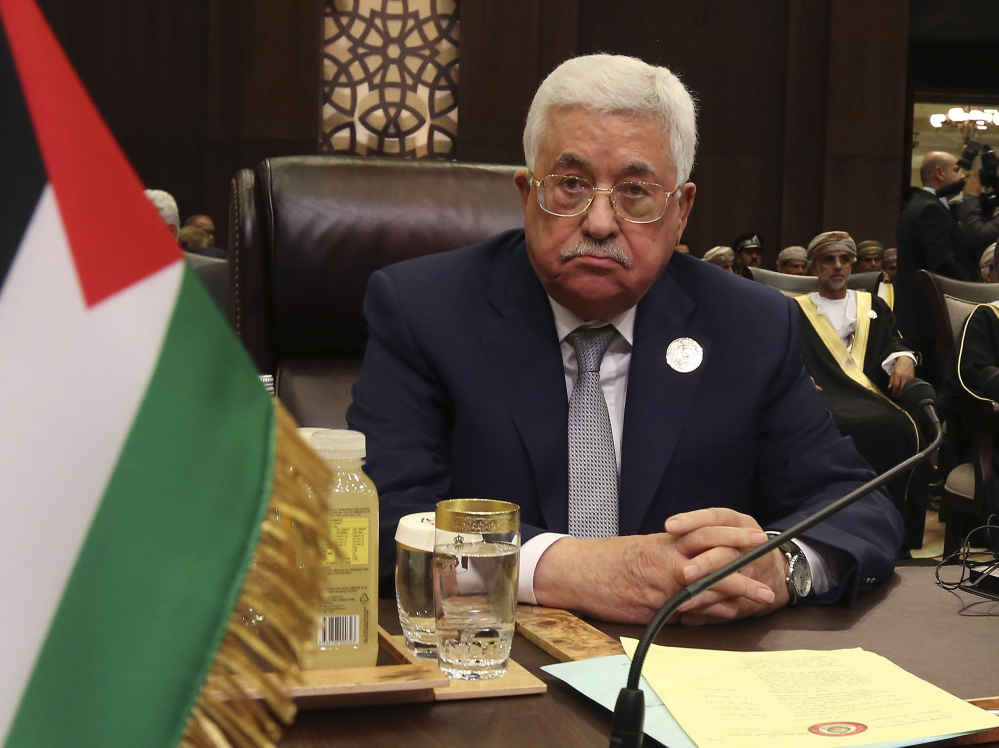JERUSALEM — As Palestinian President Mahmoud Abbas prepares for his first meeting with President Trump at the White House on Wednesday, the Arab leader and his advisers are expressing a kind of optimism not heard in years.
The Palestinians are saying they think Trump might be the one – with the right mix of bombast and unpredictability – to restart peace negotiations with Israel with the aim of securing Palestinian borders, a capital and a state.
It is an unusual moment because hope is not in abundant supply in the Middle East these days.
Most Israelis and Palestinians tell pollsters that they have low expectations for any change. Israel’s military occupation of the West Bank turns 50 years old in June, and Trump has called a possible Palestinian-Israeli accord “the toughest deal in the world.”
Similarly, former U.S. peace negotiators in Washington and their Israeli counterparts in Jerusalem say conditions are not right for a renewal of talks.
“There’s incredibly low expectations” for the Trump-Abbas meeting, said David Makovsky, a former negotiator and scholar at the Washington Institute for Near East Policy.
“There’s no context for a grand deal,” he said. Makovsky said neither Trump’s base nor the Jewish American community seems to be pushing for new talks.
But Abbas and his aides insist that movement is possible and say Trump just might be able to make headway.
Nine months of peace talks under then-Secretary of State John Kerry broke down amid bitter recriminations by Israelis and Palestinians in April 2014. Since then, there was a year-long spike in violence by lone-wolf-style Palestinian assailants armed with knives and family cars, leading to tough countermeasures by Israeli security forces.
Abbas told Japanese reporters last month that he is prepared to hold a trilateral meeting with Prime Minister Benjamin Netanyahu in Washington “under the patronage of President Trump.”
In an interview with Reuters on Thursday, Trump said: “I want to see peace with Israel and the Palestinians. There is no reason there’s not peace between Israel and the Palestinians – none whatsoever.”
Trump sent former real estate attorney-turned-Middle East envoy, Jason Greenblatt, to Jerusalem and Ramallah in March to explore the possibilities. Greenblatt got good marks from both sides. Trump also named his son-in-law, Jared Kushner, as his point man for peace in the Middle East.
In March, Trump met with Netanyahu at the White House, where administration officials pushed for constraint on the expansion of Jewish settlements in the West Bank, on land the Palestinians want for a future state. Those talks ended with no firm agreement. There are about 400,000 Jewish settlers living the West Bank on land they say was promised to them by history and God.
By the end of the Obama administration, Palestinian leaders had moved away from seeing Washington as the key to a peace deal, emphasizing instead their campaign to “internationalize” the Palestinian quest for statehood, through U.N. resolutions and a symbolic gathering of world diplomats in Paris.
Send questions/comments to the editors.



Success. Please wait for the page to reload. If the page does not reload within 5 seconds, please refresh the page.
Enter your email and password to access comments.
Hi, to comment on stories you must . This profile is in addition to your subscription and website login.
Already have a commenting profile? .
Invalid username/password.
Please check your email to confirm and complete your registration.
Only subscribers are eligible to post comments. Please subscribe or login first for digital access. Here’s why.
Use the form below to reset your password. When you've submitted your account email, we will send an email with a reset code.